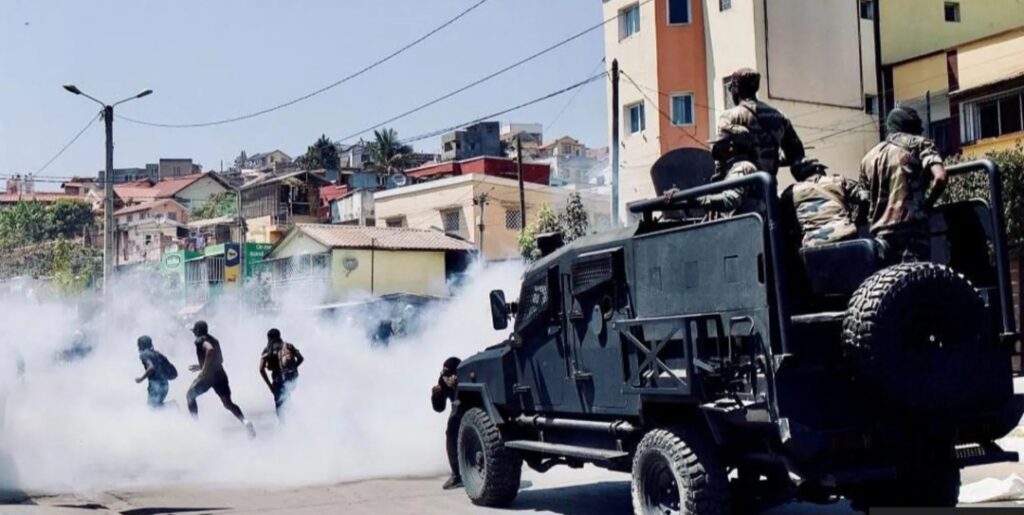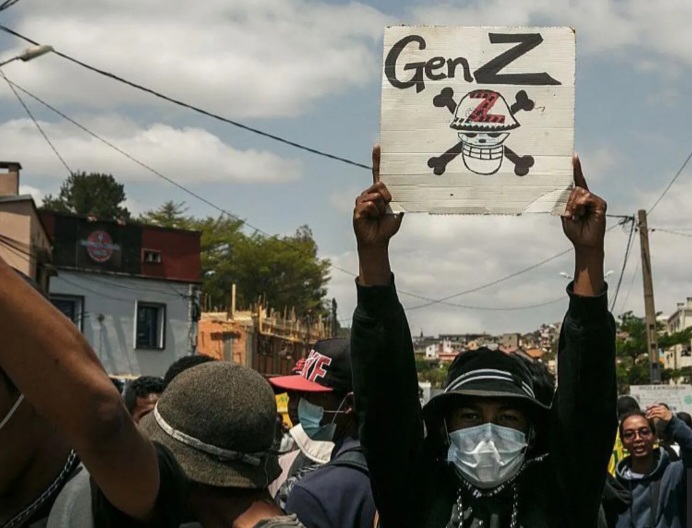
Esther Imonmion
Madagascar is reeling after days of youth-led protests forced President Andry Rajoelina to dissolve his government, a dramatic concession to a movement driven by anger over crippling power outages and water shortages.
In a televised address on Monday night, the president admitted his cabinet had failed. “We acknowledge and apologise if members of the government have not carried out the tasks assigned to them,” Rajoelina said on state broadcaster Televiziona Malagasy.
With that, he announced the termination of the prime minister and ministers — though they will continue in an interim capacity until replacements are appointed. Applications for the post of prime minister are to be received over the next three days.
What began on September 25 as a small, peaceful rally in Antananarivo has exploded into a nationwide movement. Branded the Gen Z protests, thousands of young people poured onto the streets of at least eight cities, chanting their rallying cry: “We want to live, not survive.”
By Monday, the demonstrations had swelled into the largest show of defiance against Rajoelina since he seized power in 2009 amid another wave of mass protests. Even after the sacking of the energy minister, young protesters pressed on, demanding nothing less than the president’s resignation.
The United Nations has condemned the government’s crackdown, with rights chief Volker Türk expressing shock at reports of live ammunition, beatings, and arbitrary arrests. “The use of excessive force must stop immediately,” Türk said, calling for the release of detained protesters.
According to UN figures, at least 22 people have been killed and more than 100 injured since the unrest began. Victims include protesters, bystanders, and those caught in looting that erupted on the fringes of the marches.
But Madagascar’s foreign ministry has pushed back, dismissing the UN’s toll as “rumours or misinformation.”
In Antananarivo, authorities imposed a dusk-to-dawn curfew after nights of clashes and vandalism. Police fired rubber bullets and tear gas to disperse crowds. Protesters, however, insist that much of the looting was the work of hired thugs sent to discredit their movement.
Rajoelina, who secured a controversial third term in 2023, acknowledged the pain of ordinary citizens in his address. “I understand the anger, the sadness, and the difficulties caused by power cuts and water supply problems,” he said, promising dialogue with youth leaders.
The Gen Z uprising represents the most serious threat to Rajoelina’s rule in over a decade. To his critics, the government’s collapse is too little, too late. To his supporters, it is a bold step toward reform.

For now, Madagascar waits — its cities restless, its youth defiant, and its president weakened. Whether the dissolution of government will calm the fury in the streets, or ignite a larger political firestorm, may define the island nation’s future.
